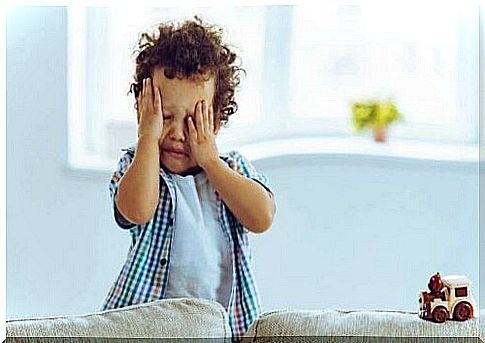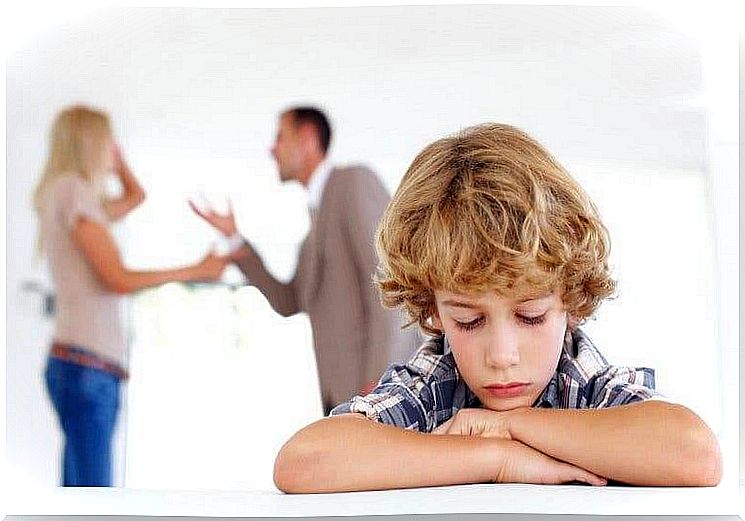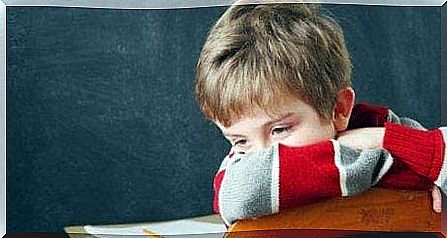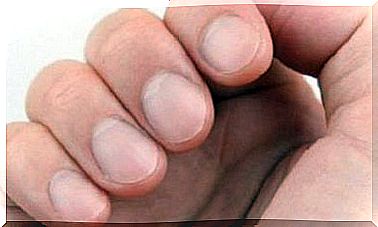How To Help Your Child Cope With Death

Death is part of life. When we are attached to a loved one and that person dies, it upsets everyone who loves them. Helping your child cope with death can be difficult because children don’t understand the meaning of the loss and they need us to help them understand that they should express their feelings without fear.
The concept of ‘death’ depends on age

A child’s understanding of the meaning of death depends on his or her age. In a baby up to 2 years old, the child only perceives the absence of the deceased.
Around age 3, children may believe that death is temporary and reversible. Between the ages of 5 and 6, they can understand that it is final and understand the difference between life and death.
They know that people can die, but it is n’t until around the age of 8 or 9 that they realize they can die themselves. After the age of 10, they can fully understand the meaning of death.
Children’s reactions to death

Children will act based on what they observe in their family. When a child has to endure the death of a loved one, their reaction will differ depending on the reactions they see in the rest of their family.
In families that speak openly on the subject, the child is given the opportunity to express his or her pain and sorrow. For families who consider death a taboo, it will be more difficult for the child to deal with it because the child does not know how to express his feelings.
Some children can silently express their pain and others will show their sadness. On the other hand, some may behave uncontrollably and angry. There may also be signs of emotional regression, anxiety, anger, and depression. It also depends on the relationship they had with the deceased relative.
Depending on the age of the child, reactions to death may also occur at school. Problems may arise such as lack of attention and concentration, memory problems (forgetfulness is common), and school performance may decline.
Methods to help your child cope with death
Just as the age of the child affects how they deal with death, how close they were to the family member is just as important. The death of a grandfather, grandmother, uncle or cousin will not be as traumatic as the death of a parent or brother.
However, whenever possible, it is important to help them face death, express their pain, and begin the grieving process to overcome the loss of that loved one.
Let them know as soon as possible
There is no perfect time to tell them about the death of a loved one. It should be done as soon as possible to help a child cope with the death of a family member.
If the mother or father has passed away, then it is better if the surviving parent shares the news. If it’s too hard for you, the responsibility may need to be handed over to another close relative.
Avoid euphemisms
Grandma didn’t “go away.” Children should be told clearly that death is final. Answer all their questions in the most natural and calm way possible. Use the correct language for their age, you need to make sure the child understands.
You don’t have to give a child information that he hasn’t asked for. If it is an elderly person or a sick person, explain that we will all die after we grow old or get sick. You can also explain, if it was an accident, that what happened affected the body of the deceased.
Let them express their feelings

Letting them express their emotions helps them cope better with the death of a family member. The death of a father or mother leaves a great void. The left-behind parent should try to support any of the child’s emotions or emotional needs when receiving the news or at the funeral.
In other words, the child may need your shoulder to cry on. Others will have to talk. They may even play or be hyperactive at the funeral. Let them move freely. They may be distracted from the overwhelming emotions while playing.
Don’t be overprotective
Some parents feel they should protect their children from death. They are not allowed to attend funerals, cry or talk about the deceased. They even make up stories about death to supposedly protect children from pain.
Despite these good intentions, it does not help children. Young children should express their feelings and tell them how much they miss the deceased relative.
From your own pain
It is good for your child to see your mourning over the death of your loved ones. If you openly see the pain that overwhelms you, then you can express how you feel about the loss of that beloved family member. Being able to express your own feelings is one way to help your children cope with the death of a family member.
Crying is necessary and natural when you feel such intense pain for the loss of someone you love. What you should pay attention to is not to scare your kids. Children should not see you at the breaking point or they will worry that they will lose you too. The way you deal with your pain will help them overcome the loss.
Saying goodbye is essential for starting the grieving process

Writing a letter is a good way to help a child cope with the death of a family member. Whether or not the child should attend a loved one’s funeral depends on the family and the child.
If they are old enough, it is important to explain what happens during a funeral. Children can decide for themselves whether they want to participate and that it is good.
Children who decide to attend a funeral can leave at any time. Respect their decision, don’t force them to be there. In this case, it’s good that you talk to someone you and your child trust so that if they want to leave, they can leave too.
In any case, try to let the child say goodbye. If the child does not want to attend the funeral, they can do so by writing a letter. They can also visit the resting place at a later date.
Saying goodbye is essential to starting the grieving process and helping children cope with the death of a family member, but it doesn’t necessarily have to happen in front of the deceased family member’s body.









